By Tanmay Shukla
Featured in IMDb Critic Reviews
Moonlight opens with Boris Gardiner’s ‘Every Nigger is a Star’ which was recently sampled in Kendrick Lamar’s song ‘Wesley’s Theory’. It’s a bright day in Miami. Juan comes out of a dashing vintage car. Wearing a gold chain necklace, he wields power and looks effortlessly cool in an intricately printed t-shirt. Chiron is being hunted down by his peers as he is vulnerable to bullying being much smaller than them. He finds shelter in a dilapidated building and covers his ears with his hands to block the sound of the stones and things hurled at him by the bullies. Juan, a stranger, rescues him and takes him to his house. In the first few minutes itself, the film’s outline has been perfectly established. What’s to come next is the heartfelt voice of the marginalized.
Chiron comes of age in the movie as he transitions from a scared kid to a teenager exploring his sexual identity, his place in the world, and finally emerges into a man who is both similar and dissimilar in some way from his childhood self. While growing up, his drug addict mother goes deeper into her addiction, becoming increasingly distant from his son and indifferent to all his needs. So he finds solace and warmth in Juan and her girlfriend, Teresa, who not only feeds him but also encourages him to ‘be himself’.
Juan is funny and caring. The swimming sequence is a powerful scene among many others. It is the point where he assumes the role of a father figure to Chiron, finding joy in every stroke and movement he makes, assuring him for his support, while also giving Chiron the happiness which had been snatched from him, providing him with some good memories of his childhood to remember. The shot is framed in such a way that makes us feel as if we are right there swimming with them. Juan makes sure that Chiron does not grow up to resent being born in a black skin. He tells him that black people were the first to inhabit the planet, and he should decide for himself ‘who’ is he going to be? Chiron stares back at him, intently, in reply.
Though the plot has a definite focus and certain themes are keenly inspected, what’s unique is their execution. Be it acting, dialogues, cinematography, music, all of it feels fresh, real and perfectly placed and the point is subtly and sensitively expressed which stays clear of any political statements. Spontaneity is maintained through creative control—the generosity with which runtime is invested on a few pertinent events gives the film enough space to create a gradual build-up letting the scene penetrate the viewer’s thoughts to elicit a strong response rather than going berserk to fit it all in and consequently failing to highlight any specific bits.
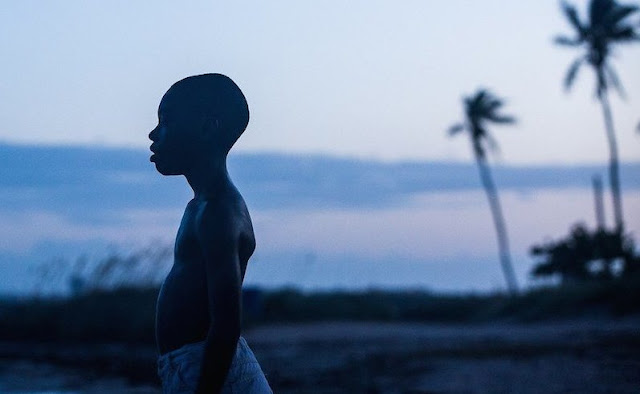

The events might seem mundane at first, but they are the reason why the characters resonate with our shared experiences and also confront us with a few new ones, compelling us to care about their lives. These small incidents/moments leave a lasting impression upon Chiron which define him and traces his personality.
Alex Hibbert plays the youngest version of Chiron—Little, who is too good for his age. Ashton Sanders as teenaged Chiron is equally impressive. Mahershala Ali has given a stunning performance as Juan. Naomi Harris as Paula, Chiron’s mother has given full justice to her character. Both the actors are deserving of their Oscar nominations. The cinematography is beautiful and effective; choice of music is precise and edited to perfection. The timing and arrangement of cuts is simple but conveys the thoughts cleverly.
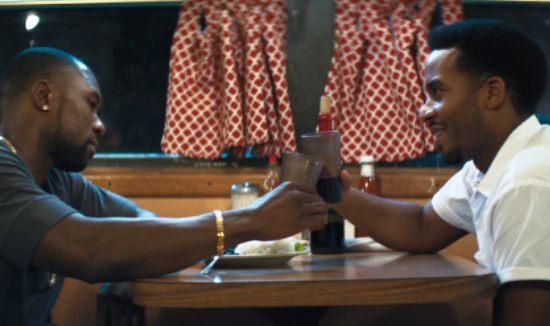

Moonlight is another landmark film after the brilliant Steve McQueen’s masterpiece 12 Years a Slave. Chiron’s story feels real and organic like McQueen’s film, but it does not evolve into a detailed heroic narrative, however it actually shines through its simple fragmented structure using the same to retain its naturalism while creatively making use of the scope of such storytelling to fill in some visceral images like the final shot of Chiron at the end. Jenkins draws inspiration from a diverse range of directors and Wong Kar Wai’s influence is evident in its subtle, suggestive nature, and the use of music and in a few frames in between where the images resemble.
The movie does justice to the question of an individual coming to terms with his/her sexual orientation. Society’s stance is of grave importance in this issue. Masculine stereotypes have been brought to attention. Their traditional gender identity and imposed roles are questioned. Lack of suitable role-models around young kids is a problem as the current generation also leads the same life their previous generations did.
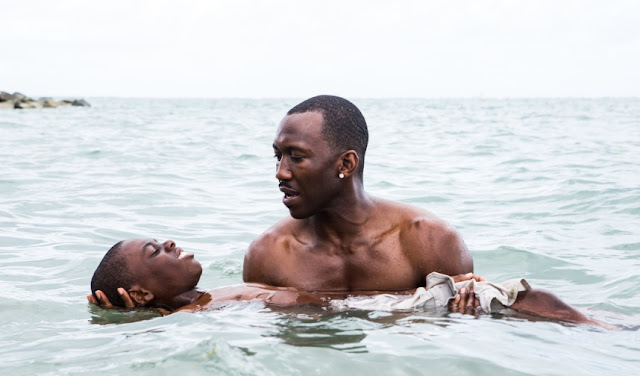

Moonlight is based on the play “In Moonlight Black Boys look Blue” written by Tarell McCraney. Being straight, the director Barry Jenkins was reluctant to go ahead with the project. We are all thankful to him that he went ahead otherwise we wouldn’t have one of the most sensitive and poetic films made in recent years. It feels like a novel. To categorize or label it as one belonging to a specific genre would be an injustice to a film which is transcendental in its expanse. It’s tough to cover all the underlying layers of this crafty artful film. It ends with little Chiron looking at the camera on a beach bathed in moonlight. And yes, he looks blue!
Bottom Line: A sublime and rare movie, it would be an equally rewarding experience to watch it again and again. A truly original movie in many years!
Moonlight Trailer (YouTube)
Rating: 8/10
Readers, please feel free to share your opinion by leaving your comments. As always your valuable thoughts are highly appreciated!
People who liked this also liked...

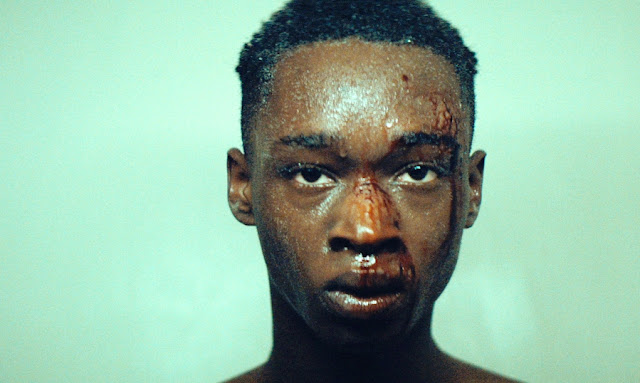
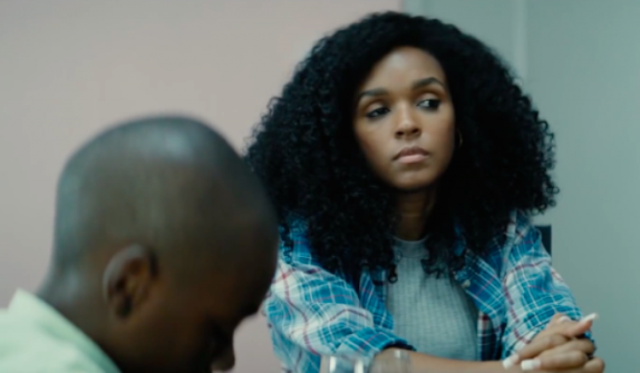

0 comments:
Post a Comment
Thanks for sharing for valuable opinion. We would be delighted to have you back.